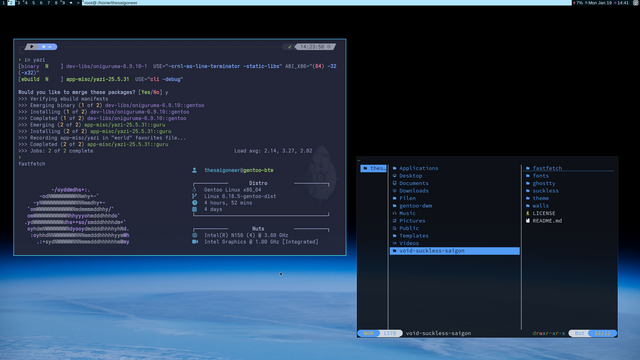2026-01-12 14:52:29
Did a reverse install of Gentoo today. Installed dwm alongside KDE, made sure all was running well. Then deinstalled all KDE parts, did a deep clean and switched profile to just desktop (from desktop-plasma). Smooth, and keeping all settings, applications and tweaks as they were. Easily beats a 4 hour reinstall 😅
#gentoo

![* Your configuration for sys-kernel/gentoo-kernel-6.12.63 has been saved in
* "/etc/portage/savedconfig/sys-kernel/gentoo-kernel-6.12.63" for your editing pleasure.
* You can edit these files by hand and remerge this package with
* USE=savedconfig to customise the configuration.
* You can rename this file/directory to one of the following for
* its configuration to apply to multiple versions:
* ${PORTAGE_CONFIGROOT}/etc/portage/savedconfig/
* [${CTARGET}|${CHOST}|""]/${CATEGO…](https://social.adlerweb.info/system/media_attachments/files/115/945/171/813/838/798/small/b2bbce61c13d14e6.png)


